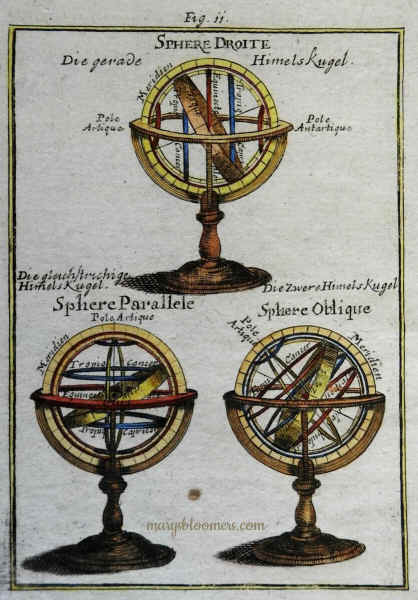Celebrate The Heavenly Bodies With Suns, moons, and stars
|
Heavenly Bodies in Your Garden A Celestial garden is similar to the zodiac garden, but the theme is more defined, and applies to the movement of the sun, moon, stars, constellations, and the beauty of the night sky. I include sunset and sunrise in the vision. A celestial garden can also refer to a Chinese celestial theme garden, featuring Chinese symbols and feng shui methods and decor. I'll cover a basic celestial theme garden, featuring the heavenly bodies. The colors white, yellow, and dark blue are the main floral color choices, along with pieces to match the concept and those colors. We all have seen hundreds of pieces of garden decor specifically depicting the yellow sun and white or yellow moon on a dark blue background. To design a specific design for Astrology or Zodiac garden, click here for the designs. Celestial Gardens look lovely in the day, but it really shines and stands out at night in the light of the moon and stars, and when combined with warm white solar lighting features. White flowers, a water feature and small fairy lights reflect from the white and pale colored flowers, and the moonlight and starlight make it magical. Many ancient celestial and astronomical charts and maps showed the planets and heavenly bodies in relation to each other in the night sky. It is silly to think of the heavens as a New Age obsession or Astrologist's hobby, and that religious folk shouldn't imbibe in the artistic concept. Early Christians used biblical symbols and themes to represent their beliefs about the heavens and who resided there. Many very old astronomical maps and documents present the cosmos with the heavenly bodies, and angelic and biblical figures. After all, it was believed that that's where they now live. Ancient astronomers studied and charted the heavens, and gardeners and farmers followed the phases of the moon and seasonal atmospheric changes for planting and harvest.
|
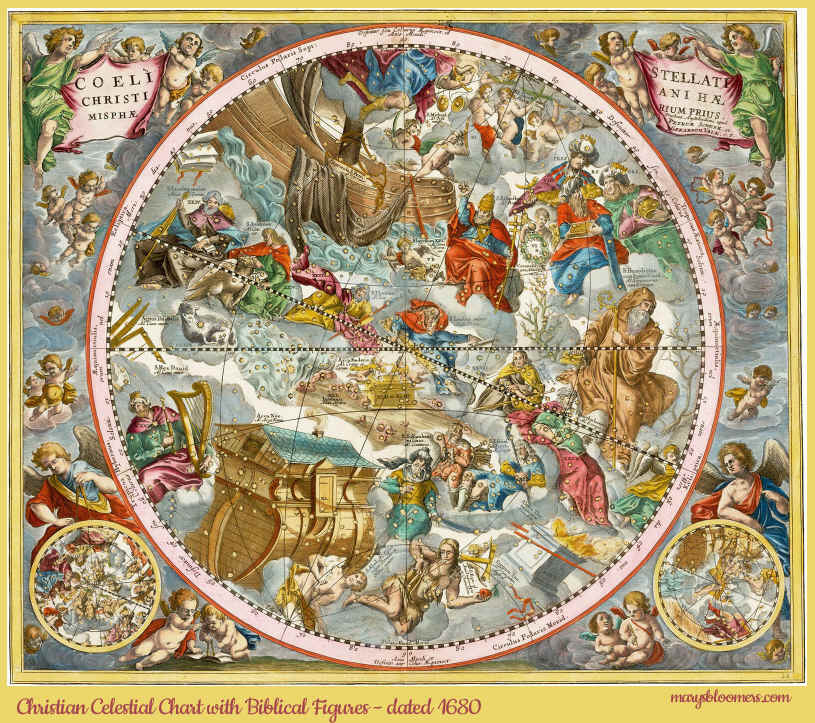 |
|
Night blooming doesn't always mean that there are closed flowers
in the day, it just means that as the flower blooms, it does so at night, and
it's enjoyable during the day, as well. You can see a list of beautiful plants, shrubs and flowers for Moonlight Gardens, and a garden theme which will work great as part of a Celestial design theme, by visiting this page. Choose white, yellow, and blue flowers of the varieties you
like. |
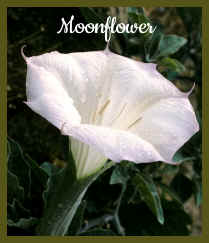 |
Moonflower (Datura species) is both fragrant and beautiful.
Its large, white trumpet-shaped flowers open at night and reflect the
moon’s light. Flowers resemble morning glories.
**Use care in choosing plant location - All parts of the plant are poisonous to humans and pets. |
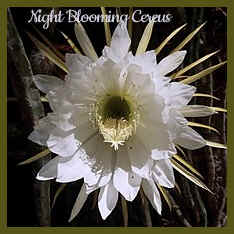 |
Night-blooming cereus is the common name referring
to a large number of flowering ceroid cacti that bloom at night. The
flowers are short lived, and some of these species, such as Selenicereus
grandiflorus, bloom only once a year, for a single night.
Night-blooming cereus flowers are almost always white or very pale shades of other colors, often large, and frequently fragrant. Most of the flowers open after nightfall, and by dawn, most are starting to wilt. This is a tall, thin-stemmed climber. |
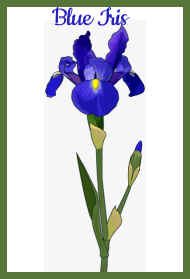 |
Iris - These perennials bloom just before lilies, and some re-bloom in the fall. Choose white, bright blues and yellows. Available in dwarf and tall varieties. Plant bulbs in fall. |
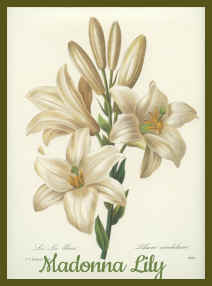 |
Beautiful, tall and elegant white Madonna Lilies bloom in clusters in spring, and is also called Easter Lily. It is grown in Mary Gardens as a symbolic plant, and it smells wonderful. No maintenance. It's a beautiful lily in moonlit gardens, as it can be grown in beds and borders. Perennial and lasts long in a vase. Plant bulbs in fall. |
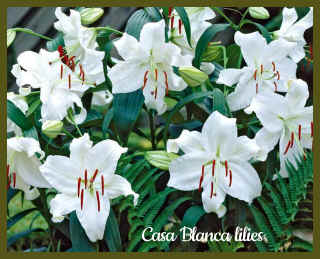 |
The Casa Blanca lily (Lilium ‘Casa Blanca’) blooms for weeks, and tolerates many soil types and conditions. The Casa Blanca lily variety is unique because it puts out new blooms in the evening, with its pure white, fragrant flowers reflecting light from the moon. Zero maintenance. Plant bulbs in fall. Perennial. |
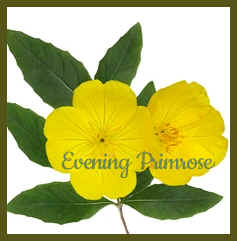 |
Sunny yellow flowers, prolific throughout the United States. Native to North America, this wildflower blooms at night from May to July |
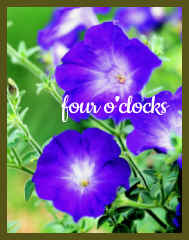 |
Vine that blooms from dusk until dawn, four o’clocks (Mirabilis jalapa) are an old-fashioned annual favorite. Available in a variety of colors, and are easy to grow from seed. 2-3 feet tall. Choose a blue or white variety. Re-plant from seed in spring. Plant in containers with trellises to keep them from invading the rest of the garden. |
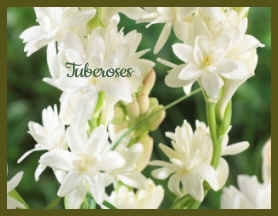 |
Native to Mexico, tuberose (Polianthes tuberosa) is a night bloomer with an incredible scent. It produces a long-flowering spike that can reach four feet tall, covered in white, waxy, fragrant blooms. Its starry flowers reflect the moonlight. Planted as bulbs in fall. |
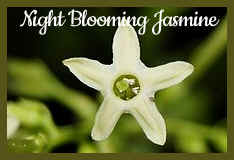 |
Cestrum nocturnum, or night-blooming jasmine, isn’t
actually jasmine, but rather a tropical nightshade. Its tiny, fragrant,
white flowers bloom against a backdrop of dark, leathery green leaves.
Plant this shrub close to a porch, patio, or window, where you can enjoy
its perfume during summer evenings.
**This plant is believed to be toxic when ingested by pets and children |
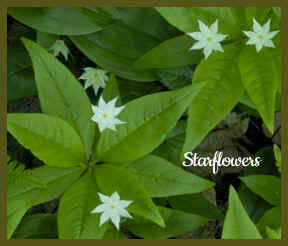 |
Starflowers (Star of Bethlehem) comes in a variety of colors. Choose white and blue. It is a native wildflower and perennial. |
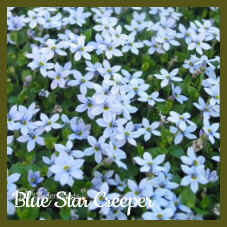 |
'Blue Star Creeper' (Isotoma) forms a lush groundcover carpet of teeny ight or dark blue star-shaped flowers. They also come in white. Perennial, and only a few inches tall. Beautiful between stones or wood slats in a garden path, in pots as a cover under tall plants, and between all flowers in the garden as lower level filler. Keeps out weeds, and is lightly "steppable". A nice dense ground cover.
|
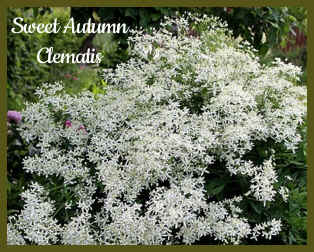 |
Clematis "Sweet Autumn" - A semi-evergreen climbing vine that can cling and wrap around plant branches and other supports. Very delicate and pretty blossoms are fragrant, and bloom until a hard frost. Beautiful representation of a starry sky. |
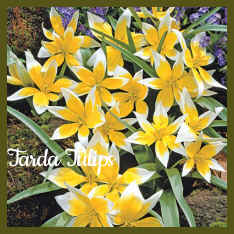 |
Tarda Tulip grows only 4 inches tall. Beautiful perennial
for understories and spring groundcover. Plant bulbs in fall.
This will give you the star shape and the sun color for the celestial theme. |
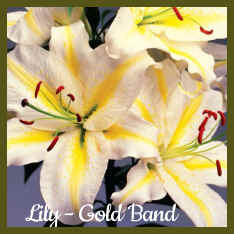 |
Oriental Lily - "Gold Band" blooms later in the season and grows to about 24 inches tall, so they most likely won't need staking. White flowers with bright yellow stripes down the center of each petal. Plant bulbs in fall. |
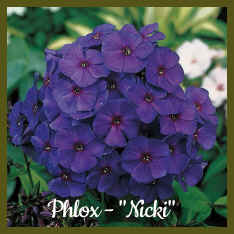 |
Tall Garden Phlox, or "Flame Flowers" bloom for
months. They are fragrant and showy, with brilliant, non-fading colors.
Growing 2-3' tall, they are excellent for perennial borders, corners and
cut flowers. The foliage is dense and compact.
There are also Creeping Phlox varieties that bloom in masses of flowers in early spring. Choose dark blue to represent the night sky, or white for the stars and moon, for your celestial theme garden. |
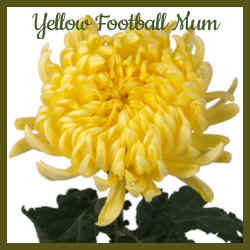 |
Big Yellow Football Mums - To represent the sun in your garden theme in the fall. Big blooms, easy to grow, perennial. Combine with smaller dark blue fall flowers, like asters, for the celestial garden. It also comes in white. |
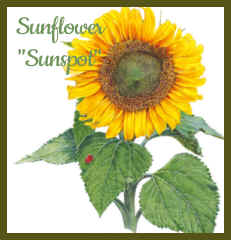 |
Sunflowers are symbolic of the sun.
It grows easily from
seed. There are now perennial and shorter varieties available. I allow
some dropped bird seed develop into the tall plants.
"Sunspot" is a dwarf variety with a large flower head on 18"–24" stems. No need to stake. Perfect. Bloom late summer and fall. |
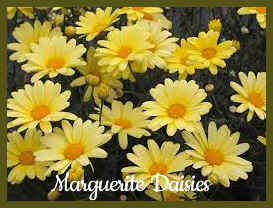 |
Yellow and white Marguerite and Shasta daisies - tough perennials, beautiful in vases. Several different heights and varieties of yellows and whites to choose from. There is a variety with teeny white flowers on mounded plants that look like baby stars. |
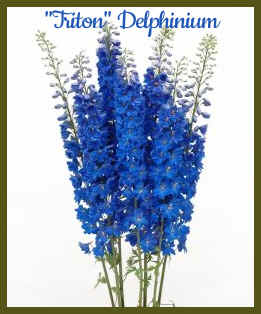 |
"Triton" Dark Blue Delphiniums - Tall spikes of
bright blue in summer for along a fence or as a centerpiece of your
garden design. Perennial.
Dark blue Foxglove is also a beautiful companion for the Delphiniums and white gladioli. |
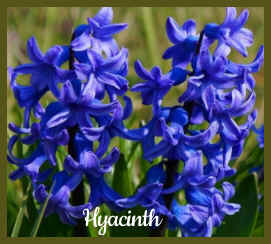 |
Choose sapphire blue, white and yellow hyacinths for an early spring bloom. Amazing fragrance day and night, goes well with white/blue creeping phlox or blue or white star creeper. |
Suggestions for Celestial Art and Symbols For The Garden
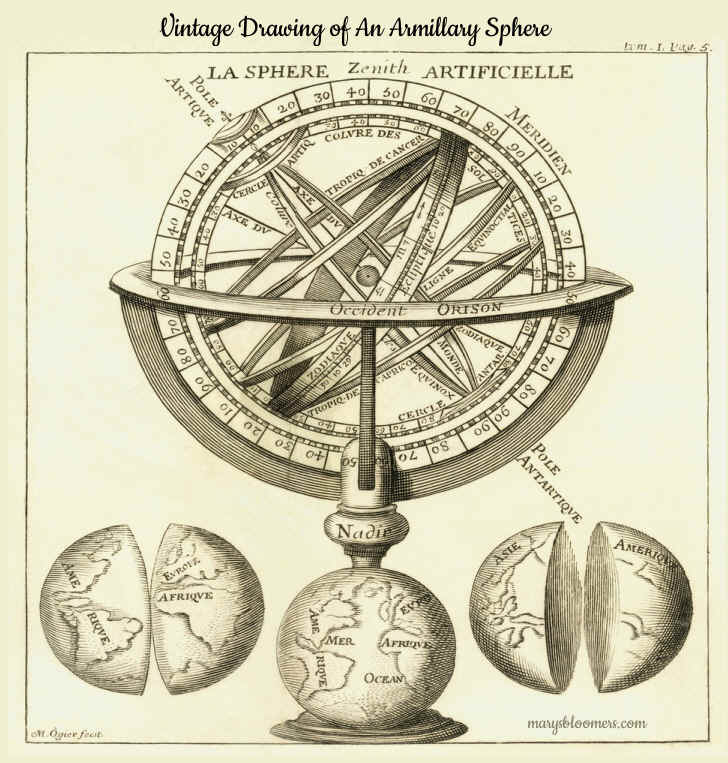 |
|
Some examples of Garden Decor Armillary Spheres
Sundials
Water Features Feng Shui and Astrology
Windchimes
Sources:
|
|||
